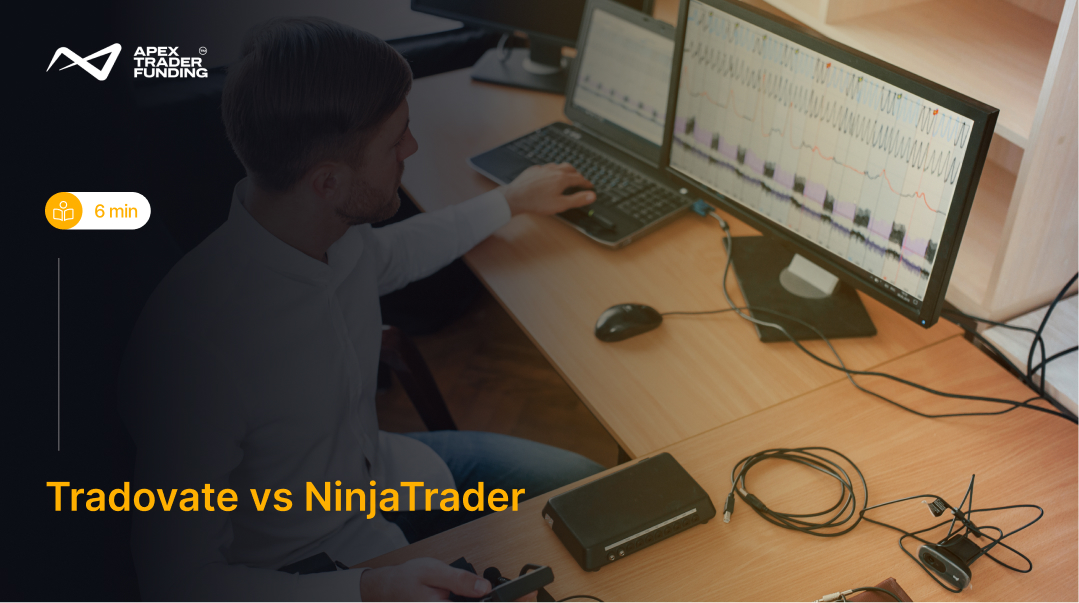
trading-tools-resources | 23-10-25
Proprietary (prop) trading has rapidly evolved into one of the most accessible gateways to the financial markets. It allows skilled traders to operate with firm-funded capital, amplifying their potential returns without risking personal savings. This modern funding model has transformed how independent traders grow — combining technology, performance-based evaluations, and structured opportunity.
As the industry expands, understanding how prop firms operate and what separates legitimate models from deceptive ones has become essential. The space is full of real opportunities, but also requires careful due diligence and awareness before participation.
Are Prop Trading Firms Legit or Scams?
Prop trading firms are legitimate businesses that fund traders to generate profits for both the firm and the trader. The model itself is not a scam; it’s a performance-based partnership where traders prove their skill through an evaluation before gaining access to firm capital.
What often creates confusion is the retail prop firm model, which operates differently from traditional institutional prop desks. Instead of hiring employees, retail prop firms offer online programs that simulate trading conditions. Once a trader passes the firm’s challenge, they receive a “funded” account and a share of the profits.
This setup is legal and widely accepted — but it also opens the door for imitation by firms that misuse the model. The key lies in understanding the difference between a structured evaluation business and a manipulative fee-collection scheme pretending to be one.
Legality and Regulation
The legal status of prop trading firms depends on how they operate and where they’re based.
- In the U.S., independent prop firms that trade their own funds or simulated capital are not bound by the same restrictions as banks under the Volcker Rule. They are permitted to operate as long as they do not take deposits or manage client funds.
- In the U.K. and E.U., firms may fall under broader business registration requirements but are generally not regulated as investment brokers, since traders use firm capital — not client money.
- Elsewhere, such as the Middle East and Asia, regulation varies. Some jurisdictions are exploring new frameworks to ensure that retail prop firms maintain transparent terms and fair evaluation conditions.
Most retail prop firms remain unregulated, not because they are illegal, but because they do not handle customer deposits or investments directly. They act as educational and performance-based service providers, connecting trader skill with funding opportunities.
Legitimacy in prop trading isn’t about promises — it’s about proof. Real firms show transparency, fairness, and results, not hype.
How to Identify a Legitimate Prop Firm
The best defense against scams is due diligence. A legitimate prop firm operates with transparency, fairness, and verifiable accountability.
Green Flags (Signs of a Legitimate Firm)
- Transparency: Clear rules, open payout policies, and no hidden fees. All trading parameters — such as profit targets, drawdown limits, and daily losses — should be accessible before signup.
- Verifiable Reputation: Established presence in the trading community, known leadership, and real trader testimonials. Independent reviews on trusted sites often confirm payout reliability.
- Realistic Expectations: Legitimate firms promote education and consistency, not get-rich-quick promises.
- Reliable Payouts: Payout frequency, limits, and past performance should be well documented and prompt.
- Professional Support: Multiple contact channels, knowledgeable staff, and active community spaces show operational credibility.
Red Flags That Signal a Potential Scam
Some entities mimic the appearance of real prop firms but manipulate traders through fine-print traps and deceptive marketing.
- Unrealistic Profit Splits or Guarantees: Offering instant payouts or 100% profit share for beginners is a major red flag.
- Hidden or Contradictory Rules: Overly complex rulebooks or vague violations that cancel your account without reason.
- Anonymous or Untraceable Leadership: Legitimate firms have registered business details and identifiable founders.
- Fake Social Proof: Beware of firms with generic, repetitive, or bot-generated reviews.
- Delayed or Denied Payouts: Consistent excuses or unclear payout processes are warning signs of cash-flow issues or manipulation.
Legitimate vs. Scam Prop Firms
Why Some Traders Call Prop Firms “Scams”
The perception of prop firms as scams usually comes from frustrated traders who fail evaluations or misunderstand firm rules. While some firms do exploit unclear rulebooks, many complaints stem from a lack of preparation or emotional trading.
The evaluation process is meant to filter traders who can follow structure, not punish them. Prop firms rely on sustainability — they need consistent traders, not one-time fee payers. Recognizing that helps traders approach the process with the right mindset.
The Balanced Reality
Prop trading firms aren’t scams — but not every firm deserves your trust. The legitimate players invest heavily in technology, education, and trader development. The bad actors exploit impatience and hype.
For traders, the responsibility lies in research and judgment. Before joining any prop firm:
- Review all rules and payout conditions.
- Verify business registration and leadership names.
- Check whether payouts have been publicly documented.
- Start small and test the process before committing to larger accounts.
A genuine prop firm builds traders through structure and discipline, not marketing illusions. The best programs don’t sell dreams — they shape consistency.
Final Thoughts
Prop trading firms represent a powerful evolution in modern trading — bridging access to capital with structured discipline. They are legitimate businesses when operated transparently, but traders must stay alert for imitation schemes that hide behind the same label. The real opportunity lies not in chasing the firm with the biggest promises, but in choosing the one that prioritizes fairness, education, and trader growth.
Start your journey with Apex Trader Funding — or try their 25K Rithmic Account and 25K Tradovate Account to experience a transparent, structured, and trusted prop trading environment.
FAQs
Most retail prop firms do not directly copy or mirror your trades into live market accounts. Instead, many operate using simulated or evaluation environments, where your performance is tracked to assess consistency, discipline, and rule adherence. If you qualify and receive a funded account, the firm may choose to replicate successful traders’ strategies internally or allocate similar capital structures — but this is usually done algorithmically, not manually copying every trade.The key point is that prop firms reward performance, not predictions. Your trades primarily serve as a proof of skill, helping the firm identify disciplined traders who can manage risk effectively.
In most cases, no — retail prop firms don’t use real money for trader accounts. The trades you place are typically executed in a simulated or demo environment, where your performance is tracked against real market data. This setup allows firms to evaluate traders safely without exposing actual capital to risk. However, the payouts to successful traders are real — they come from the firm’s revenue, often generated through evaluation fees and performance-based profits. So, while you’re not trading live funds, your success can still translate into genuine earnings.
Starting with $100 is possible, but it’s highly limiting — especially in markets like futures or stocks where margin requirements are higher. With such a small amount, your options are usually restricted to forex, micro futures, or simulated trading accounts that allow smaller positions.
If you’re serious about developing trading skills, it’s smarter to start with a demo or evaluation account from a reputable prop firm. This lets you practice strategy and risk management without risking personal capital, and once you prove consistency, you can trade larger funded accounts backed by the firm.
Related Blogs

trading-tools-resources | 28-08-25
How to Pass a Funded Trading Account? A Guide for 2026
Passing a funded trading account is often seen as the gateway to trading larger capital without risking personal savings. Yet many...
Read more
trading-tools-resources | 02-09-25
Apex Trader Funding vs Topstep - Detailed Comparison
Apex vs. Topstep: The 2026 VerdictThe choice between Apex and Topstep depends on your risk tolerance for drawdowns. Apex is cheaper...
Read more
trading-tools-resources | 04-09-25
Tradovate vs NinjaTrader in 2026: Futures Platforms Compared
NinjaTrader vs. Tradovate: 2026 Quick AnswerWhile both are owned by the same parent company, the choice is now about Interface...
Read more